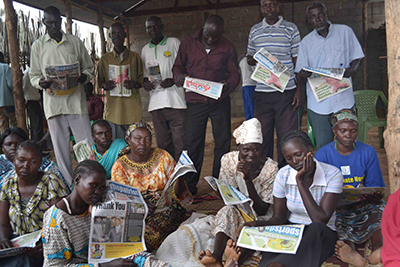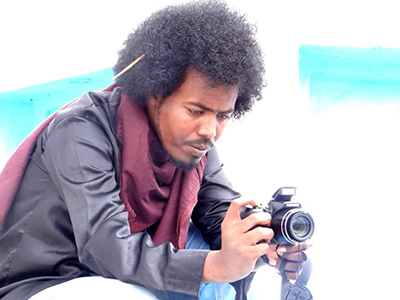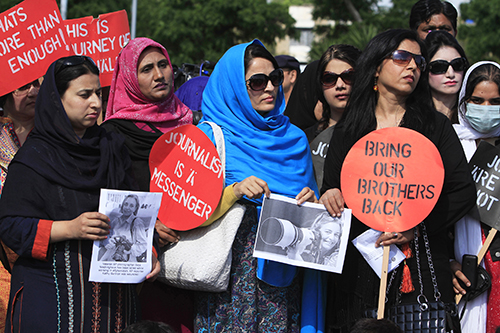Africa
2014
Congolese journalist killed in Goma, North Kivu
Nairobi, December 29, 2014–The Committee to Protect Journalists today called on authorities to thoroughly investigate the murder of state radio reporter Robert Chamwami Shalubuto in the eastern capital Goma, North Kivu Province, in the Democratic Republic of Congo on Friday and bring those responsible to justice.

Mission Journal: Ethiopian journalists must choose between being locked up or locked out
A sharp increase in the number of Ethiopian journalists fleeing into exile has been recorded by the Committee to Protect Journalists in the past 12 months. More than 30–twice the number of exiles CPJ documented in 2012 and 2013 combined–were forced to leave after the government began a campaign of arrests. In October, Nicole Schilit…
Benin’s parliament should expunge criminal defamation from the media bill
Abuja, Nigeria, December 23, 2014–Benin Republic’s parliament is set to vote on a media bill that threatens to jail journalists for insulting the president or other government officials, according to news reports. The Committee to Protect Journalists calls on parliament to scrap any measures in the bill that could send journalists to prison for doing…
Slideshow: Journalists killed in 2014
In 2014, at least 60 journalists and 11 media workers were killed in relation to their work, according to CPJ research. Local and international journalists died covering conflicts, including in Syria, Iraq, and Ukraine, while many others were murdered reporting on corruption and organized crime in their own countries. Here, CPJ remembers some of the…

In Kenya, press curbed as government seeks to fight terrorism
The Kenyan press is being caught in the crossfire as authorities seek to strengthen defenses against terrorists. On December 19, Kenya’s president signed into law a security bill that has the power to stop the press covering terror attacks. The government has also recently criticized the media over allegations that special units are carrying out…
China is world’s worst jailer of the press; global tally second worst on record
More than 200 journalists are imprisoned for their work for the third consecutive year, reflecting a global surge in authoritarianism. China is the world’s worst jailer of journalists in 2014. A CPJ special report by Shazdeh Omari

Mission Journal: As South Sudan conflict continues press still suffers
On December 15 last year, fighting that broke out between supporters of South Sudan’s President Salva Kiir and Riek Machar–who had been vice president until Kiir fired the entire Cabinet–escalated into a civil war that has increased pressure on an already fragile independent press.

Two Somali journalists killed and three injured in twin bombings
Nairobi, December 8, 2014–Two journalists were killed and three were wounded in a twin bombing in the south-central Somali town of Baidoa on December 5, which targeted a restaurant where journalists and officials frequently congregate.
Legacy of Rwanda genocide includes media restrictions, self-censorship
Twenty years after massacres, Rwanda stable but its media restricted The Rwandan government has taken great strides in bringing stability to the country since the 1994 genocide that claimed 800,000 lives, but moves to allow greater press freedom have been slow. While government control of the media has loosened, many journalists remain fearful that the…
